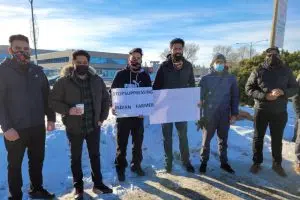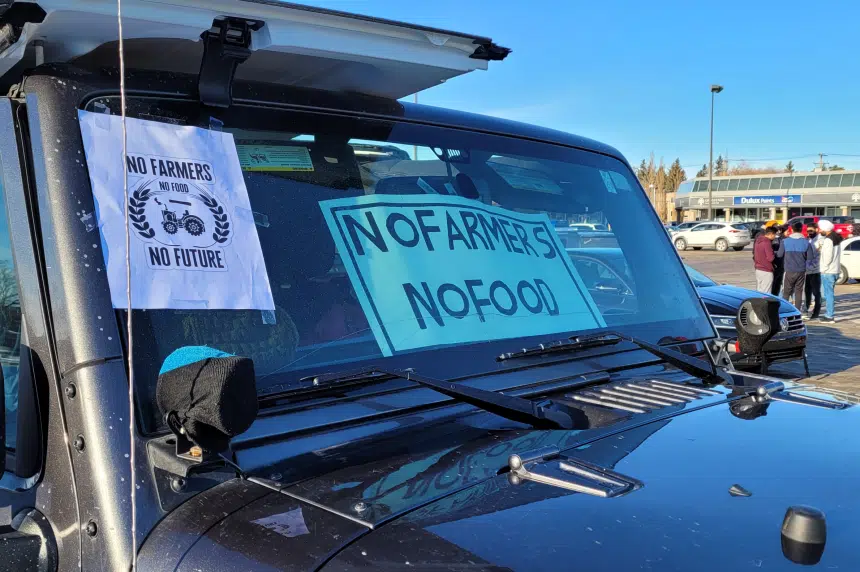Hundreds of people in Saskatoon lined sidewalks on 8th Street Saturday to protest farming reforms in India.
Waving signs reading “We support farmers” and “Justice for Indian farmers,” the crowd that grew to roughly 300 people outside the Grosvenor Park Centre, gathered in solidarity with farmers in India protesting reform bills passed in September.
Raj Toor said the new legislation could potentially upend farmers’ way of life.
“They’re passing bills that are essentially going to bring those farmers to their knees,” he said.
Thousands of Indian farmers are protesting reforms that they claim could devastate crop prices and reduce their earnings. Recent measures taken by protesters include blocking highways on the outskirts of New Delhi for the last 10 days, according to recent reports from the Associated Press.

Protesters say the reforms will drive down prices and introduce corporate exploitation. (Keenan Sorokan/650 CKOM)
The laws will lead the government to stop buying grain at minimum guaranteed prices, the farmers claim. This could result in corporate exploitation that could drop prices.
“The current government is planning to abolish their way of life,” Toor said. “That’s why we’re here today to make sure the Indian government understands it’s not right to do what they’re doing right now.”
The protest in Saskatoon was one of the dozens being held in cities across the world to stand in solidarity with Indian farmers.
Prime Minister Narendra Modi’s government continues to insist these reforms will benefit farmers, citing a boost in production via private investment.
Until the reforms were introduced in September, Indian farmers were selling their crops directly to the government at guaranteed prices.
The idea is to move out the farmers, bring in corporate (ownership),” Toor said of the ongoing struggle. “Essentially, it’s all about land ownership.”
With such an impressive showing of support, Toor isn’t ruling organizing more protests in the future.
“I’m extremely impressed by the community to show up here to support people who are on the other side of the world,” Toor said. “It’s important we do that because that’s how awareness is created.”











